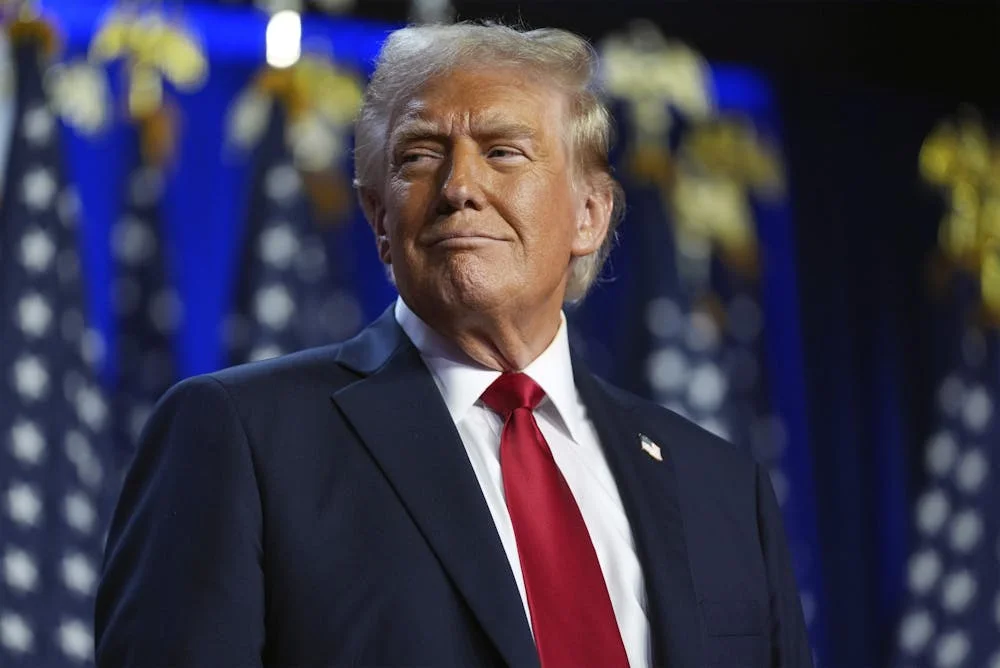Trump Ties Crypto to U.S. Power Play as Digital Assets Take Center Stage
07.05.2025 12:00 2 min. read Alexander Stefanov
Cryptocurrency may have existed long before Donald Trump returned to the White House, but under his leadership, digital assets have gone from a fringe technology to a central pillar of U.S. economic strategy.
Unlike past administrations that approached crypto with caution—or outright dismissal—Trump has pushed for its integration into the national agenda, blending economic ambition with geopolitical competition.
While boosting the domestic economy remains his top priority, Trump recently revealed a more strategic motive for embracing crypto: staying ahead of China. “If we don’t lead in crypto, China will,” he said during a press appearance, underlining how digital currencies have become part of a broader global contest for financial influence.
Since taking office, Trump’s administration has launched several crypto-friendly initiatives, including the creation of a national Bitcoin reserve and crypto reserves in assets like XRP, ADA, and SOL.
The SEC, under recently replaced chair Mark Uyeda, also took a friendlier stance toward the industry, easing enforcement on crypto companies—a tone that may continue under Paul Atkins, who is set to lead a task force meeting on real-world assets later this month.
But Trump’s crypto play isn’t just about policy. It’s also become a tool for fundraising. In a show of how deeply his campaign is tied to the digital asset world, he’s holding private dinners where entry is granted to those holding significant amounts of his TRUMP-branded cryptocurrency. One event was held on May 5, with another planned for May 22.
Trump’s crypto strategy appears to fuse personal branding, national economic policy, and global rivalry—all in one ambitious push to reshape America’s digital future.
-
1
FTX Pushes to Dismiss Billion-Dollar Claim from 3AC
23.06.2025 15:00 1 min. read -
2
BIS Slams Stablecoins, Calls Them Ill-Suited for Modern Monetary Systems
26.06.2025 9:00 1 min. read -
3
Trump’s ‘Big, Beautiful Bill’ Approved: What It Means for Crypto Markets
04.07.2025 7:00 3 min. read -
4
ARK Invest Cashes In on Circle Rally as Stock Soars Past $60B Valuation
24.06.2025 19:00 1 min. read -
5
FTX Pushes Back Against $1.5B Claim From Defunct Hedge Fund 3AC
23.06.2025 11:00 1 min. read
Top 10 Biggest Crypto Developments This Week
The latest WuBlockchain Weekly report captures a high-volatility week in crypto. From Bitcoin’s new all-time high to controversy around Pump.fun’s presale and Elon Musk’s political Bitcoin endorsement, markets are witnessing sharp shifts in momentum and policy.
Federal Reserve Chair Jerome Powell Reportedly Weighing Resignation
U.S. financial circles are bracing for a potential shake-up as reports suggest Federal Reserve Chair Jerome Powell is considering stepping down.
Peter Schiff Warns of Dollar Collapse, Questions Bitcoin Scarcity Model
Gold advocate Peter Schiff issued a stark warning on monetary policy and sparked fresh debate about Bitcoin’s perceived scarcity. In a pair of high-profile posts on July 12, Schiff criticized the current Fed rate stance and challenged the logic behind Bitcoin’s 21 million supply cap.
Report Claims That Binance Played a Foundational Role in the Creation of Trump Related StableCoin
Changpeng Zhao, the former CEO of Binance, reportedly supported crypto projects linked to the Trump family while privately seeking a presidential pardon, according to a July 11 report by Bloomberg News.
-
1
FTX Pushes to Dismiss Billion-Dollar Claim from 3AC
23.06.2025 15:00 1 min. read -
2
BIS Slams Stablecoins, Calls Them Ill-Suited for Modern Monetary Systems
26.06.2025 9:00 1 min. read -
3
Trump’s ‘Big, Beautiful Bill’ Approved: What It Means for Crypto Markets
04.07.2025 7:00 3 min. read -
4
ARK Invest Cashes In on Circle Rally as Stock Soars Past $60B Valuation
24.06.2025 19:00 1 min. read -
5
FTX Pushes Back Against $1.5B Claim From Defunct Hedge Fund 3AC
23.06.2025 11:00 1 min. read


